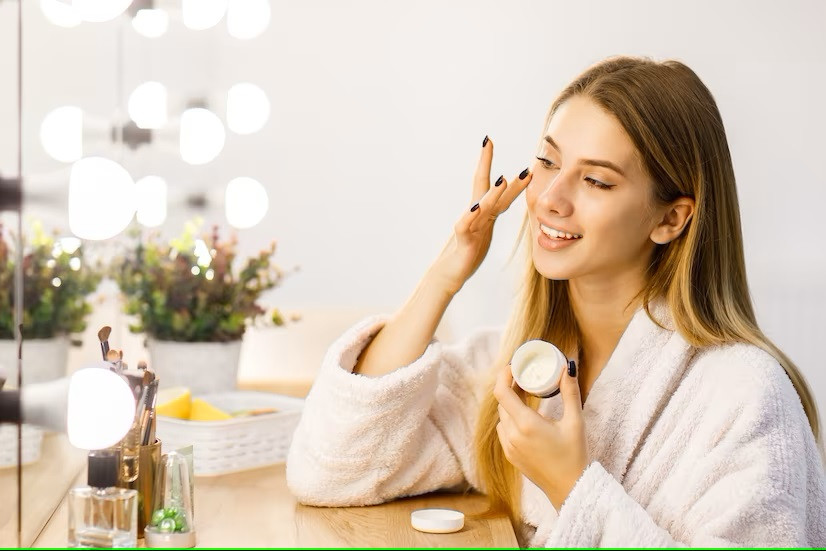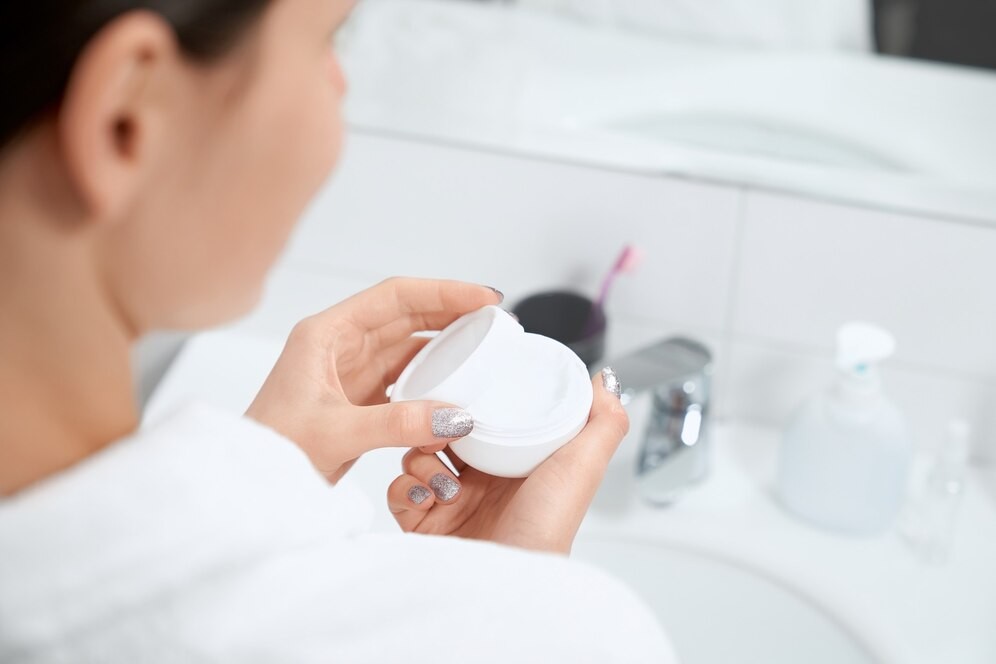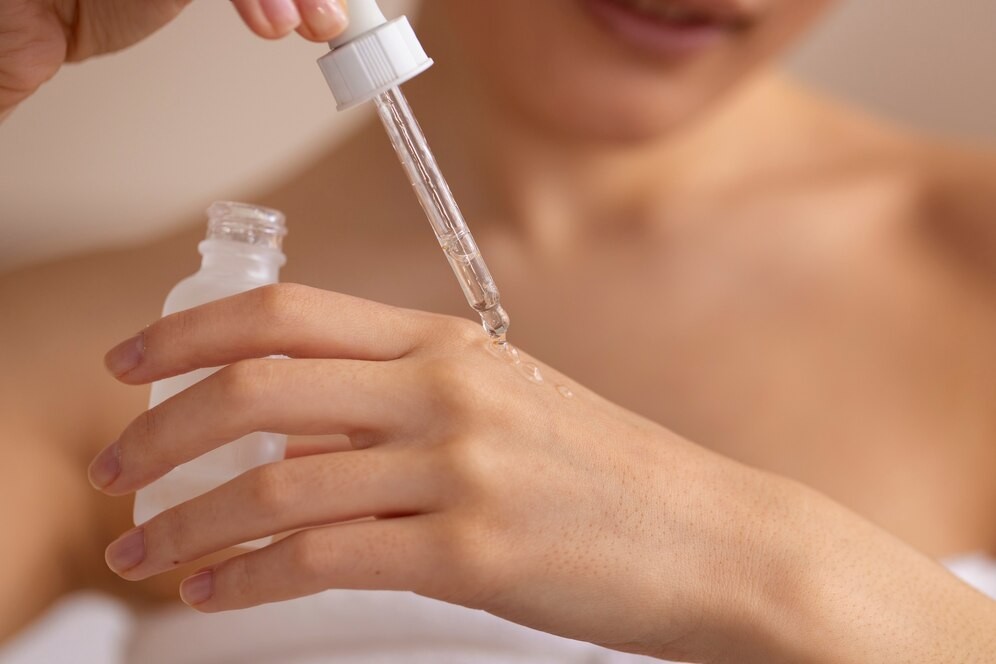Memiliki kulit berminyak sering kali memberikan tantangan tersendiri dalam perawatan kulit. Kelebihan produksi sebum pada kulit berminyak dapat menyebabkan wajah berkilau, pori-pori tersumbat, dan munculnya jerawat.
Penting untuk memilih produk skincare yang tepat bila memiliki jenis kulit berminyak agar tidak memperburuk kondisi kulit.
Kandungan Skincare yang Tidak Cocok untuk Kulit Berminyak
Beberapa bahan yang terkandung dalam produk skincare mungkin tidak cocok digunakan oleh jenis kulit berminyak. Bahan tersebut mungkin dapat menyebabkan peningkatan produksi sebum, menyumbat pori-pori, dan memicu iritasi.
Berikut adalah beberapa kandungan skincare yang sebaiknya dihindari bila memiliki kulit berminyak:
Mineral oil
Mineral oil merupakan salah satu bahan umum yang dapat ditemukan dalam produk pelembap dan pembersih wajah. Bahan ini sering digunakan karena memiliki sifat melembapkan sehingga membantu menjaga kelembapan kulit.
Namun, bagi kulit berminyak, mineral oil bisa menjadi musuh utama. Mineral oil dapat membentuk lapisan di permukaan kulit dan menyumbat pori-pori. Pori-pori yang tersumbat dapat memicu munculnya komedo dan jerawat.
Lanolin
Lanolin merupakan zat alami yang diambil dari wol domba. Zat ini sering digunakan dalam produk pelembap maupun lip balm. Meskipun sangat efektif untuk melembapkan kulit kering dan memberikan kelembutan, namun lanolin bukanlah pilihan yang cocok untuk jenis kulit berminyak. Seperti halnya mineral oil, lanolin dapat menyumbat pori-pori dan memicu komedo serta jerawat.
Baca Juga: Ciri-Ciri Kulit Berminyak dan Permasalahan yang Dialami
Denatured alcohol
Denatured alcohol atau alkohol denaturasi sering digunakan dalam produk skincare seperti toner dan pembersih. Bahan ini dapat memberikan sensasi segar dan cepat meresap di kulit.
Walaupun alkohol dapat mengurangi kelebihan minyak di permukaan kulit, penggunaan jangka panjang justru dapat membuat kulit memproduksi lebih banyak sebum sebagai respons terhadap kekeringan yang terjadi. Hal ini justru memperburuk masalah kulit berminyak dan menyebabkan kulit tampak lebih berminyak serta mudah iritasi.
Paraben
Paraben adalah bahan pengawet yang sering digunakan dalam produk perawatan kulit. Paraben dapat membantu memperpanjang masa simpan produk.
Selain kontroversi terkait keamanan penggunaan paraben dalam jangka panjang, paraben dapat menyebabkan iritasi kulit dan memperburuk jerawat. Produk dengan kandungan paraben sebaiknya dihindari terutama bila memiliki jenis kulit sensitif atau rentan terhadap jerawat.
Minyak kelapa
Minyak kelapa dipercaya sebagai bahan alami yang sangat baik untuk melembapkan kulit. Namun, bahan ini sebaiknya dihindari oleh pemilik kulit berminyak. Meskipun bersifat alami, minyak kelapa dapat menyumbat pori-pori dan memicu komedo serta jerawat.
Baca Juga: Memilih Tabir Surya yang Cocok untuk Kulit Berminyak
Shea butter
Shea butter biasanya ditemukan dalam produk pelembap dan krim karena kemampuannya dalam menjaga kelembapan kulit. Shea butter memiliki tekstur yang berat dan bisa menyumbat pori-pori, terutama pada kulit berminyak. Menggunakan shea butter secara rutin justru membuat kulit terasa lebih berminyak serta rentan terhadap jerawat.
Kunci dalam merawat kulit berminyak adalah memilih produk skincare yang tepat. Hindari produk yang dapat menyumbat pori-pori dan memicu produksi minyak berlebih.
Utamakan memilih produk berformula ringan, memiliki label non-comedogenic dan diformulasikan khusus untuk kulit berminyak. Jangan ragu untuk berkonsultasi dengan dokter atau ahli dermatologi agar mendapatkan saran yang tepat.
Anda juga bisa memanfaatkan layanan konsultasi kesehatan Ai Care dengan mengunduhnya melalui App Store atau Play Store.
Mau tahu tips dan trik kesehatan, pertolongan pertama, dan home remedies lainnya? Cek di sini, ya!
- dr Nadia Opmalina
Beth Ann Mayer (2022). The 'Dirty' Half Dozen: 6 Ingredients to Avoid for Stress-Free Skin Care. Available from: https://www.healthline.com/health/beauty-skin-care/ingredients-to-avoid-for-stress-free-skin-care
American Academy of Dermatology Association (2024). How to Control Oily Skin. Available from: https://www.aad.org/public/everyday-care/skin-care-basics/dry/oily-skin
Sara Lindberg and Victoria Stokes (2022). The Ultimate Skin Care Routine for Oily Skin. Available from: https://www.healthline.com/health/beauty-skin-care/skin-care-routine-for-oily-skin
Jenna Fletcher (2022). Is mineral oil bad for your skin?. Available from: https://www.medicalnewstoday.com/articles/is-mineral-oil-bad-for-your-skin
Anastasia Climan, RDN, CD-N (2022). What Is Lanolin?. Available from: https://www.verywellhealth.com/lanolin-5081303
Jody Amable (2020). What Is Denatured Alcohol and Why Is It in My Skincare Products?. Available from: https://www.healthline.com/health/alcohol/alcohol-denat
US FDA (2022). Parabens in Cosmetics. Available from: https://www.fda.gov/cosmetics/cosmetic-ingredients/parabens-cosmetics
Jeanette Kimszal, RDN (2024). What’s the Deal With Parabens?. Available from: https://www.verywellhealth.com/are-parabens-bad-for-you-5204132
Courtney Leiva (2023). Is Coconut Oil a Good Moisturizer?. Available from: https://www.healthline.com/health/coconut-oil-moisturizer
Kathryn Watson (2023). Shea Butter for Your Face: Benefits and Uses. Available from: https://www.healthline.com/health/shea-butter-for-face












